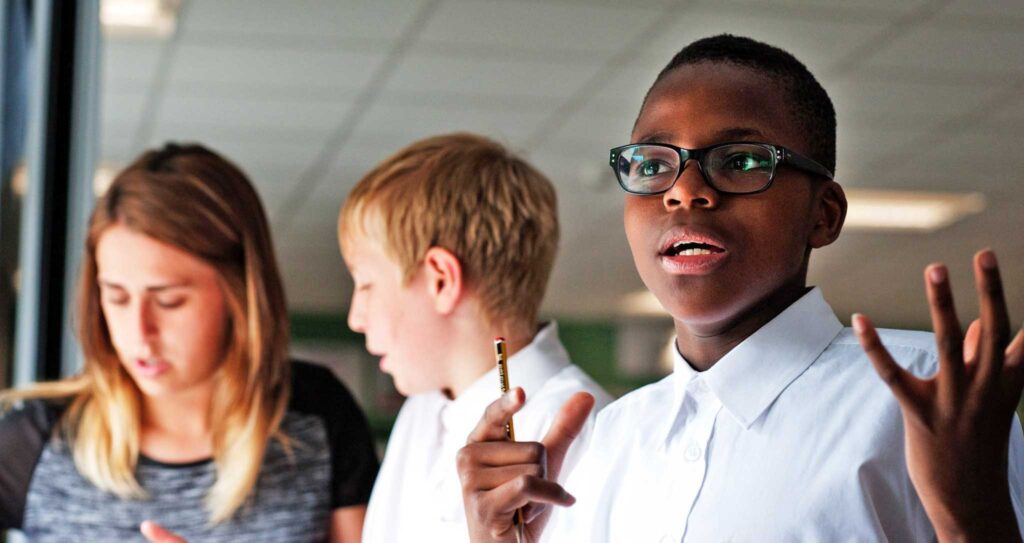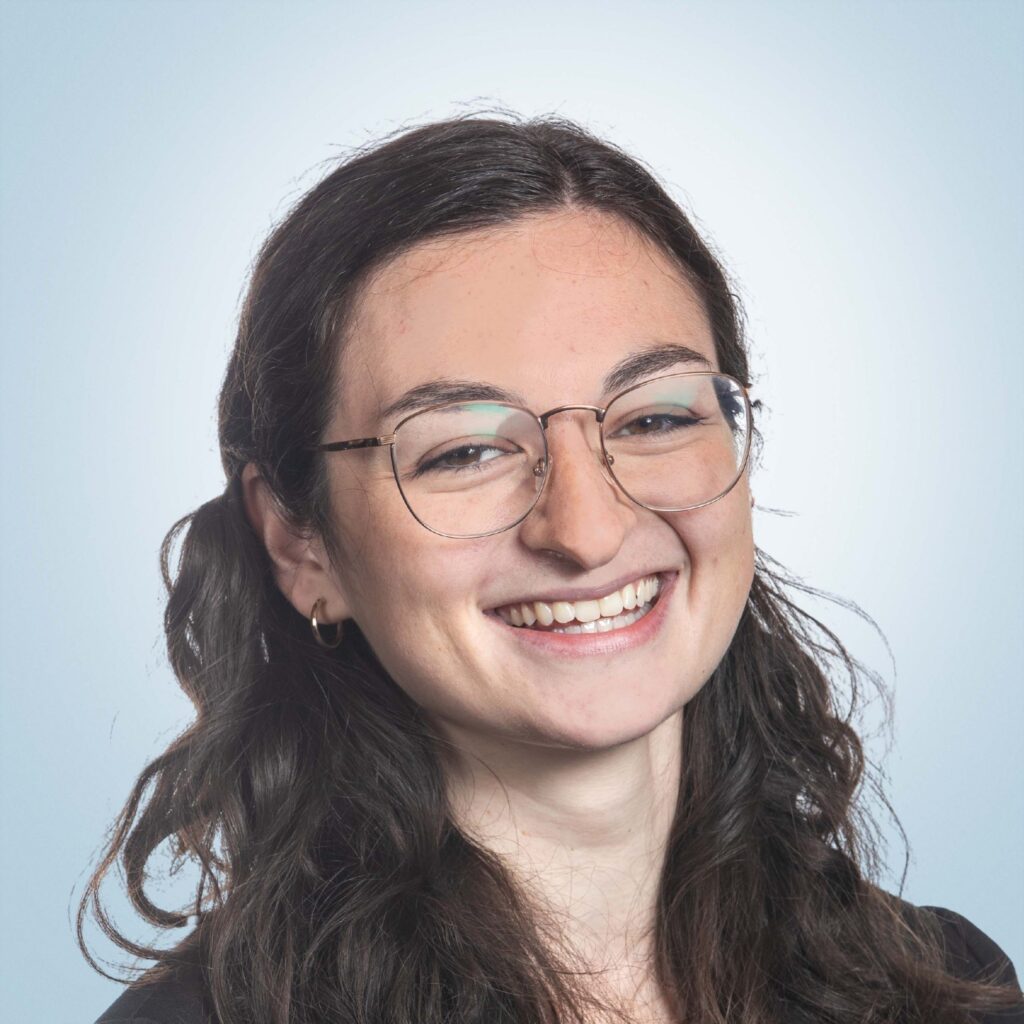It’s August, which means kids are saying goodbye to summer break to go back to school next month. But 244 million kids around the world didn’t attend school last year, and millions more did not receive a quality education. Many barriers hold kids back, from navigating the classroom with a disability to experiencing food insecurity.
Imagine all the future scientists, leaders and innovators we lose when millions of children can’t access a quality, consistent education. As Malala Yousafzai said, “one child, one teacher, one book, one pen can change the world.”
Luckily, our charity partners are working to give every child a fair shot at a bright future. Read on to learn more about their work breaking barriers for students around the world.
Sightsavers
There are 240 million – or one in 10 – children living with disabilities around the world. Yet disability more than doubles a child’s chances of being out of school, and girls with disabilities are most at risk of discrimination. A student may have trouble getting to and navigating the classroom, focusing on lessons or even seeing the board. Since 2020, school closures have led to a greater learning crisis, creating increased exclusion, marginalisation and poverty for children with disabilities.
Sightsavers has shown that change is possible: When education systems are inclusive, children with disabilities can learn alongside their peers and thrive. Sightsavers is working to ensure that lessons are stimulating, classrooms are accessible, and teachers have the tools they need to support all students, as well as working with governments and those involved in global education to call for changes in policy and greater investment. In just one example, Sightsavers is supporting more than 40 preschools in Malawi. Through this early childhood development project, young children with disabilities attend mainstream preschools where they can learn, play and develop alongside their peers.
“At first, I couldn’t manage to teach the children with and without disabilities all together. But after the training, I know how.” – Nora, a teacher in Malawi who received training from Sightsavers
Gates Philanthropy Partners
Across the U.S., undergraduate college enrollment dropped 8% from 2019 to 2022 as tuition prices continued to rise and COVID-19 shut down in-person learning. For many students of color and students from low-income backgrounds, postsecondary education has become harder and harder to achieve, increasing wealth gaps and inequities.
Gates Philanthropy Partners works with on-the-ground grantees making an impact for U.S. students, distributing $3.4 million last year to education grantees. Gates Philanthropy Partners and its partner organizations have incorporated programming encouraging college into teacher training, provided technical assistance on community college campuses and ensured data is collected on students enrolled part-time in college. These innovations promote college for all at a systemic level, meaning better outcomes for students for generations to come.
“Ultimately, I’m hopeful that all our work will help reframe what it means to be successful in postsecondary education by ensuring equitable value for improved outcomes for all students.” – Nicole Ifill, Deputy Director, Data at Gates Philanthropy Partners
USA Girl Scouts Overseas
Learning doesn’t just take place in the classroom; after-school programming is another critical component to develop the next generation. When families move, kids’ development can stagnate as they navigate new schools as well as new friends and cultures.
For decades, USA Girl Scouts Overseas has taught girls in K-12 across the world valuable life skills, inspiring confidence and leadership. Girls lead their troops based on their own interests and develop their skills outside of a classroom setting based on four key areas: STEM (science, technology, engineering, and math), outdoors, life skills and entrepreneurship. Originally established for American military families living outside of the U.S., USA Girl Scouts Overseas now has nearly 17,000 members from American military and non-military families.
Ashoka
Ashoka knows that everyone can be a changemaker, which is why investing in the next generation is so important. Ashoka Young Changemakers, a global network of powerful young people who have launched social initiatives, are empowering their peers to be leaders in their communities. At the university level, Ashoka recognizes Changemaker Campuses that embed social innovation as a core value in their curriculum. And the Ashoka Venture and Fellowship provides support to adult changemakers making a difference for the next generation.
What can changemakers accomplish? Ashoka Fellow Vishal Talreja co-founded an organization called Dream A Dream in India to make safe, creative learning environments for young people from adverse backgrounds. When students are supported to follow their ideas and make an impact, entire communities benefit.
International Relief Teams
Good nutrition is essential for children. When kids are hungry, they may have chronic health problems, behavioral challenges and trouble focusing in school. In the U.S., 9.3 million children are in food insecure households; across the world, more than 350 million kids suffer in extreme poverty.
As part of its work to support victims of disaster, poverty and neglect, International Relief Teams helps kids in need achieve success. International Relief Teams’ work varies from providing food and education to children at an orphanage in Baja California, Mexico, to serving low-income families in San Diego with a weekend food assistance program.
$90 gifts food and education for a child for a month at the Kids Kingdom Orphanage in Baja California, Mexico.
You too can be a global champion for education by giving to these charities in your workplace. Learn more about how you can give to these causes at www.charity.org/give.



